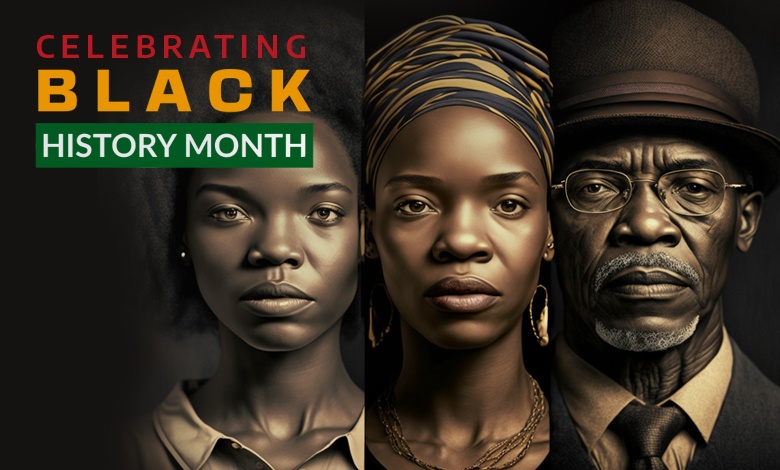Every February, we turn our attention to the rich tapestry of Black history and culture. black history month abbr nyt serves as a powerful reminder of the contributions and sacrifices that have shaped America. It’s a time for reflection, education, and celebration. The stories of resilience, courage, and brilliance deserve not just to be remembered but honoured throughout the year.
As we explore this vibrant month, we’ll dive into why it matters so much in today’s society. From groundbreaking figures who changed the course of history to ongoing struggles within the community today—there’s so much to uncover. So join us on this journey as we celebrate legacy and progress during black history month abbr nyt!
The Importance of Celebrating black history month abbr nyt
Celebrating black history month abbr nyt is essential for recognizing the rich contributions of African Americans to our society. This month serves as a reminder that history is not just about dates and events; it’s about people who have shaped our world.
Acknowledging these achievements fosters understanding and respect across cultures. It highlights struggles, resilience, and triumphs that often go unnoticed in mainstream narratives.
Moreover, this celebration encourages education. Schools and communities engage in discussions that promote awareness of systemic issues still present today. By learning from the past, we can inspire future generations.
Black History Month also provides a platform for voices that deserve to be heard. Events, art exhibits, and literature spotlight stories of courage and innovation. These expressions enrich us all by broadening perspectives on race relations.
Most importantly, it unites individuals from diverse backgrounds in honouring shared humanity while challenging inequities rooted deep within society’s fabric.
Key Figures and Events in black history month abbr nyt
black history month abbr nyt is rich with influential figures who shaped the nation. Harriet Tubman, a fearless leader of the Underground Railroad, risked her life to lead enslaved people to freedom.
Martin Luther King Jr.’s dream for equality stirred hearts and ignited movements. His “I Have a Dream” speech remains an emblem of hope and change.
Rosa Parks sparked the Montgomery Bus Boycott by refusing to give up her seat. This act of defiance became a catalyst for civil rights activism.
In sports, Jackie Robinson broke barriers in baseball as the first African American player in Major League Baseball. His courage paved the way for future generations.
Events like the Harlem Renaissance celebrated Black culture through art and literature, leaving lasting legacies that continue today. Each figure and event tells a story of resilience and determination that still resonates within society’s fabric.
Progress Made Since the First black history month abbr nyt
Since the inception of black history month abbr nyt in 1976, significant progress has been made in recognizing and celebrating African American contributions to society. Schools now incorporate comprehensive curricula that highlight pivotal figures like Harriet Tubman and Martin Luther King Jr.
Legislation surrounding civil rights has evolved dramatically. Laws have been enacted to protect against discrimination, ensuring more equitable opportunities for education, employment, and housing.
The cultural landscape is also shifting. More films, books, and media projects centre on Black narratives. This increased visibility fosters a greater understanding of history beyond mere statistics.
Organizations dedicated to social justice continue to thrive as well. They strive for systemic change while empowering future generations with knowledge about their heritage.
Public recognition during this month extends far beyond conversations at home or school; it resonates through art exhibits, community events, and national discussions that shape perceptions today.
Challenges Still Faced by the Black Community
The Black community continues to face significant challenges that hinder progress. Systemic racism remains deeply entrenched in various aspects of society, including education, employment, and housing.
Disparities in access to quality education can limit opportunities for future generations. Many schools in predominantly Black neighbourhoods struggle with underfunding and resources, impacting students’ potential.
Additionally, economic inequality persists. Unemployment rates among Black individuals often exceed those of their white counterparts. This contributes to a cycle of poverty that is difficult to break.
Health disparities also play a critical role. The Black community experiences higher rates of chronic illnesses due to factors like inadequate healthcare access and environmental injustice.
Social justice issues highlight ongoing discrimination and violence against Black individuals. These challenges demand attention and action from all sectors of society for meaningful change to occur.
How to Celebrate black history month abbr nyt
Celebrating black history month abbr nyt can be both enriching and inspiring. Start by educating yourself. Read books or watch documentaries that highlight the contributions of Black individuals throughout history.
Engage with your community by attending local events, such as lectures, art exhibits, or performances focused on Black culture and history. These experiences foster understanding and appreciation.
Support Black-owned businesses during this month. Whether you dine at a restaurant or shop for unique crafts, every purchase contributes to economic empowerment.
Encourage discussions in your circle about racial justice and historical context. Open dialogues can lead to greater awareness and action.
Consider volunteering with organizations that uplift the Black community. Giving your time can make a meaningful impact while deepening your connection to the cause.
Conclusion: Continuing the Legacy of black history month abbr nyt
black history month abbr nyt serves as a powerful reminder of the resilience, creativity, and contributions of Black individuals throughout history. Each February highlights their struggles and triumphs while inspiring future generations to continue advocating for equality and justice.
As we celebrate this month, it’s essential to recognize that honouring Black history is not limited to just 28 days. The lessons learned during this time should resonate year-round. Engaging with diverse narratives enriches our understanding of society’s fabric.
Continuing the legacy means acknowledging historical injustices while fostering an environment where all voices are heard. By educating ourselves and others about the past, we can make strides toward a more inclusive future.
This journey involves celebrating accomplishments but also confronting ongoing challenges faced by the Black community today. Together, through awareness and action, we can ensure that the significance of Black History Month echoes far beyond its duration—making an impact on our world every day.






